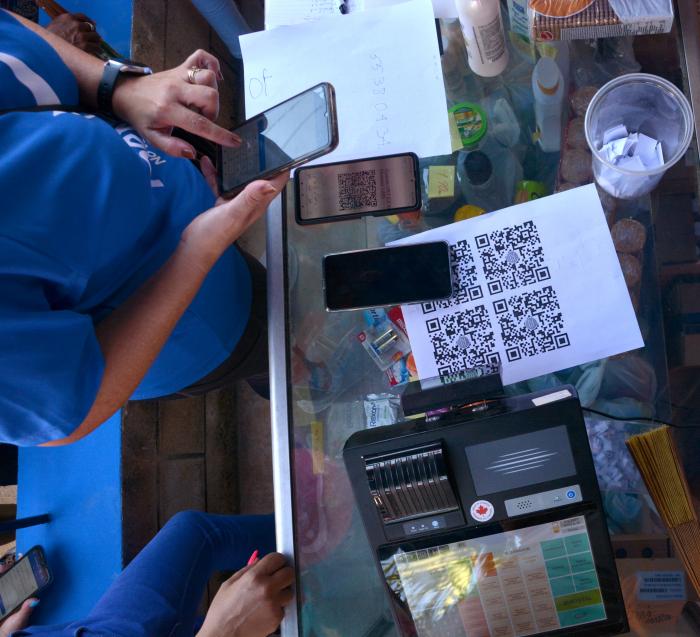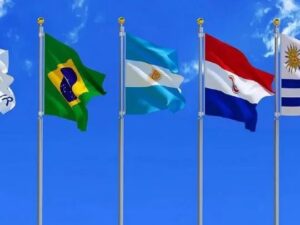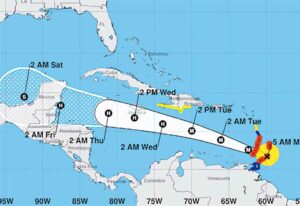The Policy for the Digital Transformation of the Country presents the digital economy as one of the strategic axes, while e-commerce has been promoted for several years.
The term digital economy appears in the Policy for the digital transformation of the country as one of its strategic axes, with the objective of «transforming the economic, financial, commercial, logistical and productive systems, so that they contribute to the economic growth of the country and the well-being of the population, introducing digital technologies in the design and implementation of the processes of management, production and distribution of goods and services in all areas of society».
But beyond its implementation, it is worth asking what the digital economy is. Wilfredo González Vidal, first deputy minister of the Ministry of Communications (Mincom), explained to Granma that this term refers to any economic activity that depends on or is significantly improved by the use of a digital infrastructure or service.
In this new concept for Cuba,» he emphasised, «the first thing that must be done, and this is part of the work being promoted by the Mincom, is to encourage proper interpretation, so that it can then be better implemented.
He added that this is an axis established in the Policy, but it will be worked on jointly with the Ministry of Economy and Planning, the institution responsible for it.
In this concept, he added, data is a fundamental issue. «In this Policy for Digital Transformation we are going to stimulate and implement a greater use of the country’s digital data».
This means that public information data must be put to better use by the government, as well as by the business system.
For the First Deputy Minister, talking about a digital economy entails:
Understanding that all productive economic activity necessarily involves the innovation of certain technologies in the ICT sector, in order to make it more efficient.
The data that is generated as part of that public good or that economic activity is also used in favour of its own performance.
In this framework, he stressed the importance of promoting and implementing projects that stimulate greater use of existing data, whether in public management from the government or in business, to improve their performance and in the face of the customer.
He acknowledged that it has not yet been possible to provide a better response in the telecommunications infrastructure, due to financial constraints, even though there are conditions and reserves, from the point of view of services, for the citizen.
González Vidal gave as an example, in these data management processes, the exercises carried out by the Faculty of Physics at the University of Havana, associated with people’s mobility for decision making, and whether these were effective, as well as others associated with taxpayers’ payment issues.
«Therefore, the digital economy is not about a traditional economy, but about seeing how, from the technologies themselves, new facilities are now being incorporated,» he said.
E-COMMERCE AND BANKARISATION
On this issue, the First Deputy Minister said that this is one of the areas in which the conditions and capacities exist in the country to promote them even more.
He added that e-commerce is a broader concept, which is prioritised in association with the banking of transactions and the ease, opportunity and security of making a digital payment.
González Vidal mentioned that so-called bankable zones have been created, in which businesses with certain economic activities, whether state-owned or private, meet all the conditions for citizens to make digital payments.
«I am referring to having, in addition, an updated commercial register, a tax account established to make online payments, and well implemented qr codes».
ACCURACY
- According to Mincom, magnetic card transactions that move balances and not cash are growing with respect to the previous year (62.8 %). At the end of May 2024, this indicator was 72 %.
- Transfermóvil, with an acceptance rate of 4.75 out of a possible five points, reached five million users, while EnZona has 1 083 000.
- In Transfermóvil, the online generation of qr codes for the contracting process was automatically enabled, boosting the creation of digital businesses for economic actors. By the end of June, 95,634 businesses had been enabled on this platform.
- In the first five months of 2024, payment for electricity services increased to 69.6 %, telephone services remained at 87 %, and payment for gas increased to 49.9 %.
61 % of taxes and duties were collected electronically by the National Tax Administration Office, 12 % of which were paid by individuals. - The Joven Club de Computación y Electrónica and the Unión de Informáticos de Cuba have accompanied the process of bankarisation, supporting more than 20,000 economic actors in the creation of their digital businesses.
- They have facilitated the creation of digital skills and training, until June 2024, for 435 566 users, including 31 985 adults and 950 people with disabilities.




